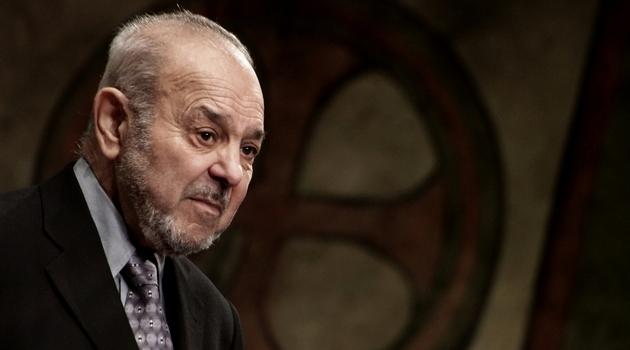Karel Holomek, one of the most eminent figures in the Romani world, has passed away

Mr. Karel Holomek, the Romani activist, founder of the Museum of Romani Culture, and politician, passed away at 15:00 CET on 27 August after a long, serious illness. His daughter Jana Horváthová informed news server Romea.cz of his death.
“Our brilliant Dad, who was a hero with great style until his final days, breathed his last breath today at 15:00. He did so very much for people, his life was full of work, but he also lived to the full. His deeds are here to stay with us and will continue, now he is at peace and at rest. He was ready to die and in his final days he neither ate nor drank, so we are glad his liberation did not take too long. Light a candle for him and remember him in a good light, there is nothing else he would have wished for,” Horváthová posted to the Facebook social media site.
Mr. Karel Holomek was born in 1937 in Brno, Czechoslovakia. His father, Tomáš Holomek was the first Romani person to achieve a university education in Czechoslovakia.
The Holomek family was persecuted during the Second World War and a large part of them perished in the concentration camps. Karel and his sister Marcela were also meant to be transported to Auschwitz because they were half-Romani.
Thanks to the bravery of their mother and the aid of a Czech gendarme and their neighbors in Milotice, Nazi officials never discovered Karel and Marcela. Their father went into hiding during the war in Slovakia.
Mr. Holomek graduated from Brno’s Military Academy in mechanical engineering, where he also worked for several years as an assistant. In 1968 he had to leave the academy because of his political position on Czechoslovakia being occupied by Warsaw Pact troops.
In Brno during the 1970s he moved in the circles of dissidents and disseminated samizdat literature. In 1981 he spent a brief time in prison.
“What I would like to underline is that he was an awfully brave and even-handed person who loved people. He was 100 % reliable. After the August 1968 invasion, he ruined his academic career when he openly said it was an invasion, and until the coup he was forced to make do as a manual laborer, officially, while unofficially he was a construction manager on building sites during socialism, he contributed, for example, to the building of the Družba pipeline and laid the foundations for the Dukovany Nuclear Power Plant. He was a dissident who disseminated illegal literature in our country and who also ran an illegal publishing house,” Horváthová told Romea.cz about that era of her father’s life.
Mr. Holomek got involved in politics after the 1989 revolution. From 1990-1992 he was a deputy in the Czech National Council for Civic Form (Občanské fórum) and, after it split up, for the Civic Movement (Občanské hnutí).
He founded the Roma Civic Initiative (Romská občanská iniciativa). He deserves a great deal of credit for establishing the Museum of Romani Culture, the work for which first began in the early 1970s.
The museum was first officially established in 1991 at the initiative of Mr. Holomek and other Romani intellectuals as a non-governmental, nonprofit organization. Since 2005, the museum has been a state-sponsored organization of the Czech Culture Ministry.
The current director of the museum is Mr. Holomek’s daughter, Jana Horváthová. After its founding, he became chair of the Association of Roma in Moravia and honorary chair of the Society of Experts and Friends of the Museum of Romani Culture.
Mr. Holomek was also the director of the International Romani Center of the Helsinki Civil Assembly (Helsinské občanské shromáždění), a member of the Czech Government Council for Human Rights, a member of the Czech Government Council for Roma Minority Affairs, and the editor-in-chief of the magazine Romano hangos.
Mr. Holomek was awarded a Bronze Medal of Merit. He was given that state honor in 2002.